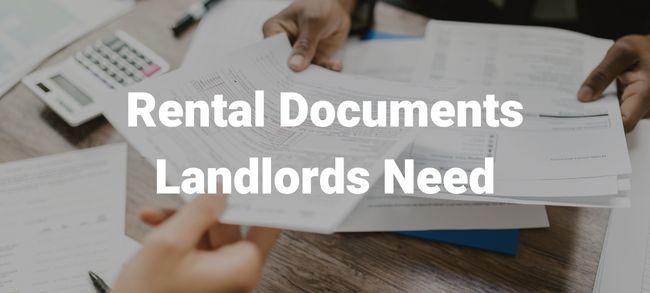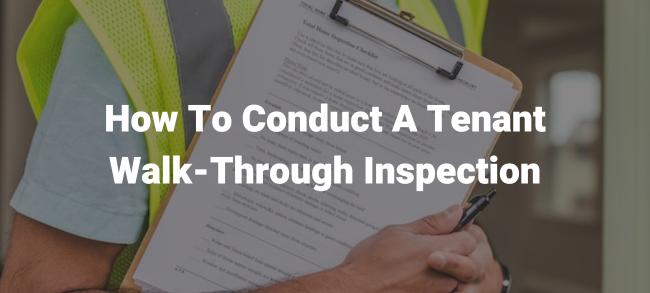Rental Documents Landlords Need

Becoming a landlord has many benefits, like having an extra source of income. However, it also comes with many responsibilities, including property maintenance, accounting, and dealing with paperwork. A landlord needs to keep track several rental documents, like lease agreements and rental inspection reports. But keeping track of all documentation can be as time-consuming as a full-time job.
Not only do you want to ensure you keep all the necessary documents safe, you must also organize them for easy access. Many landlords keep online backups of important documents in the cloud to avoid misplacing important documents, but physical copies are still vital to running a smooth rental operation. Keep reading to learn which essential rental documents landlord’s need and how to best manage this paperwork.
Why Landlords Need to Do Paperwork
Owning a rental property means operating a business. Like any business endeavour, this includes handling paperwork. Landlords should keep records of lease agreements, payment notices, inspection reports, and other vital documents. Some of the main reasons why landlords and property managers keep track of this documentation include:
- Accountability - Having a copy of documents such as rental agreements is a surefire way to hold both landlords and tenants accountable. For example, the lease agreement allows both parties to understand their rights and responsibilities.
- Legal Protection - Copies of most rental documents can come in handy in case of a court hearing. For example, a copy of the signed lease agreement can serve as evidence in your favor during a rental dispute case.
- Accounting - Keeping track of all the paperwork of your rental property will come in handy when handling the finances. Security deposits and rent receipts, for example, are great for keeping track of all the money you collect.
- Efficiency - With a consistent tracking and storage system, it’ll be easier for you to keep track of the documents that need to be signed, reviewed, or backed up. Once you have your system up and running, you’ll have more free time to focus on other aspects of your investment.
What Rental Documents Landlords Should Keep on File
As a landlord, there are many documents related to current and active leases that you should always have on hand. It’s best to keep copies of these documents even after a lease has ended to ensure you have all the information you need in case an issue arises. Below are the four documents rental property owners should always keep on file:
1. Lease Agreements
The most important document that landlords need to have on hand and filed for safe keeping is the lease or rental agreement. This contract between the landlord and the tenant stipulates the basic rights, rules, and obligations of both parties during the rental process. A good lease agreement will help you avoid any issues that might arise.

You should keep a physical copy of the agreement during the entirety of the lease period and up to a year after the lease has ended. You should also keep a digital backup in case something happens to the original.
2. Lease Amendments
These documents reflect all the modifications done to the original lease agreement, whether it’s adding or removing clauses or updating existing ones. Lease amendments are as important as lease agreements, so you should always keep the hard copy on file and a digital backup.
3. Rental Inspection Reports
General, move-in, and move-out inspection reports allow you to document the condition of your property throughout the leasing period. These documents come in handy when you need to provide a reason for keeping the security deposit or if you want to plan out future repairs or upgrades to the property.
4. Notices
You should keep all notices on file, including those for nonpayment of rent and non-renewal notices. You should also keep track of when the notices were sent and received, as well as any follow-ups that may have been sent. All this information can be critical in case of a court hearing.
What Documents Landlords Need from Tenants
As a landlord, you need to ensure your tenants are reliable and trustworthy. Some of the documents you can ask for from prospective tenants include an application form, written permission to run a background check, and financial documents such as pay stubs or W-2s, as well as mailing addresses even if they're moving out.

You can also ask them to provide reference letters or proof of tenant insurance. Keeping these documents on file will allow you to assess the tenants qualifying criteria and help you in case any issues or complaints arise.
What Documents Landlords Need to Give Tenants
Landlords should always provide tenants with security deposit recipes and lead-paint disclosure notices. In addition to this, it’s important to provide tenants with a copy of the lease agreement. This way, they’ll understand the full extent of their rights and responsibilities. Note that landlord-tenant laws differ in every state. If you’re planning to rent out a property in Tampa remain up-to-date on Florida’s laws so you don’t forget vital documentation.
How to Organize Your Rental Paperwork
Organizing your rental paperwork can be a hassle but it’s a crucial task. A simple way to keep all documentation in order is to have separate, organized file drawers or files on your computer. These files can be classified by year, tenants, or each property you own. This way, you’ll always know where to find the necessary information. Once you have a system in place, it’s important to document everything, like rental applications, pet screening records, invoices, receipts, and tenant requests. Putting these things on paper will come in handy when you’re tracking finances or editing lease agreements.
Bottom Line
Becoming a landlord has many benefits, but it also comes with responsibilities such as keeping track of paperwork. Organizing and storing all the documents you need can be as time-consuming as a full-time job. Luckily, the team at Advantage Realty Services is here to help you. We’ll handle all the paperwork and management of your properties on your behalf!








